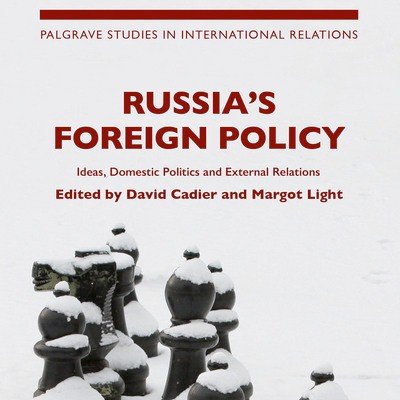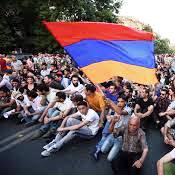(Palgrave Studies in International Relations) The Ukraine crisis in 2014 took many observers by surprise. Its magnitude and implications necessitate a better understanding of the drivers of Russia's actions in international politics. Russia's Foreign Policy: Ideas, Domestic Politics and External Relations analyses the evolution and main determinants of Russia's foreign policy choices. Its various chapters, written by renowned specialists in the field, shed light on and attempt to explain some of the new trends – including an increasingly nationalistic tone in foreign policy discourse and a heightened level of animosity towards Europe – characterizing Russia's contemporary policy. This study posits that Russia's behaviour is driven above all by objectives and imperatives linked to domestic regime consolidation. That is to say, Russia's foreign policy is the continuation of domestic politics by other means.
Edited by David Cadier, Margot Light
PART I: PERCEPTIONS AND IDEAS IN RUSSIAN FOREIGN POLICY
1. Russian Foreign Policy Themes in Official Documents and Speeches: Tracing Continuity and Change; Margot Light
2. Russian Foreign Policy as Exercise In Nation-Building; Dimitri Trenin
3. How Vladimir Putin's Worldview Shapes Russian Foreign Policy; Fiona Hill
PART II: DOMESTIC POLITICS
4. Dualism at Home And Abroad: Russian Foreign Policy Neo-Revisionism and Bicontinentalism; Richard Sakwa
5. The Rising Cost of Russia's Authoritarian Foreign Policy; Marie Mendras
6. Russia's Foreign Policy and Soft Power; Tomila Lankina And Kinga Niemczyk
PART III: EXTERNAL RELATIONS
7. Mismatched Partners: US-Russia Relations after The Cold War; Andrew Kuchins
8. Refracting Europe: Biopolitical Conservatism and Art Protest in Putin's Russia; Andrey Makarychev and Alexandra Yatsyk
9. Policies towards the Post-Soviet Space: The Eurasian Economic Union as an Attempt to Develop Russia's Structural Power?; David Cadier
10. Russia and Asia-Pacific: Diversification or Sinocentrism?; Natasha Kuhrt
11. Russia in International Organisations: The Shift from Defence to Offence; Ian Bond
Conclusion
Foreign Policy as the Continuation of Domestic Politics by Other Means; David Cadier and Margot Light











